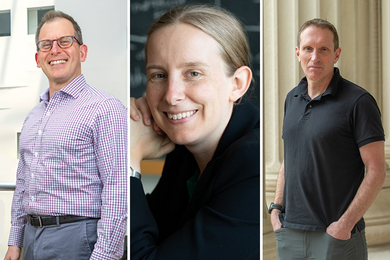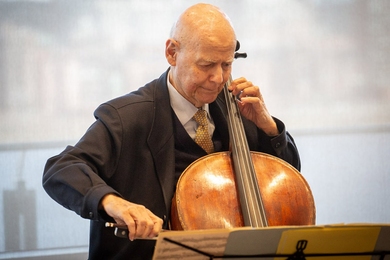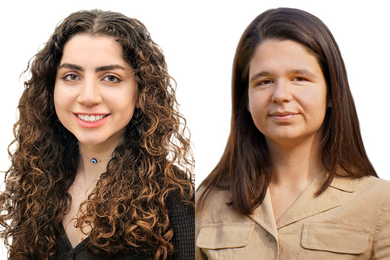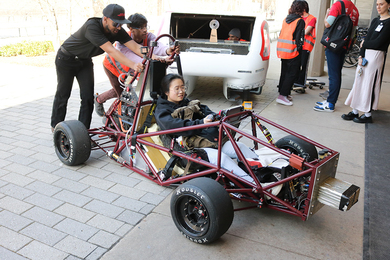The David and Lucile Packard Foundation has announced that atomic physicist Richard Fletcher, assistant professor of physics and a researcher at MIT-Harvard Center for Ultracold Atoms (CUA) and the MIT Research Laboratory of Electronics (RLE), has been named a 2023 Packard Fellow for Science and Engineering. The Packard Foundation Fellowships are one of the most prestigious and well-funded nongovernmental awards for early-career scientists.
Fletcher is one of 20 innovative early-career scientists and engineers named to the 2023 class of Packard Fellows for Science and Engineering. Two MIT alumni were also named: Ritchie Chen SM ’13, PhD ’16 and Yang Yang PhD ’16, both now at the University of California at San Francisco. Each fellow receives $875,000 over five years to pursue their research.
“It’s a tremendous honor to be awarded a Packard Fellowship, and I’m very grateful to the foundation for their support of our work,” says Fletcher. “It’s quite inspiring to look down the list of alumni, and I hope that we will live up to the same high standards.”
Fletcher and his lab use precisely controlled gases of atoms at ultracold temperatures to create and study exciting types of quantum matter. He uses atomic vapors, which are a million times thinner than air and a million times colder than interstellar space, which in turn are manipulated by laser beams and magnetic fields, he says.
“In many systems in nature, the behavior of many particles is qualitatively different to the underlying single-particle physics,” he explains. “For example, superconductivity is the frictionless flow of electrical current, which occurs in many low-temperature materials, but you can’t understand it from the physics of a single electron. In turns out that in general, describing the emergence of macroscopic phenomena from microscopic ingredients is really hard once the rule book is quantum mechanical.
“We approach this problem by building little tailor-made quantum worlds, formed by very cold gases of atoms, a million times colder than deep space, controlled and manipulated by laser beams and magnetic fields. In particular, since these platforms are free from many of the constraints imposed by real materials, we can use them to create states of matter that nature has simply never allowed to exist before. And honestly, some of the time we just use these exquisite tools we’ve developed to simply play around and have fun in the lab, and see what surprises experiments throw our way. That’s what I love most about experimental science!”
A native of Chester, U.K., he earned his undergraduate degree in 2010 and his PhD in 2015 from Cambridge University, and in between those degrees he was a Frank Knox Fellow at Harvard University. His thesis focused on the interplay of superfluidity and Bose-Einstein condensation in two dimensions. In 2016, he arrived at MIT as a Pappalardo Fellow, working with Martin Zwierlein on quantum fluids in artificial magnetic fields, and joined the MIT faculty in 2020. In 2022 he was awarded the AFOSR Young Investigator Award.
Past Packard fellows have gone on to receive such honors as the Nobel Prize in chemistry and physics, the Fields Medal, Alan T. Waterman Awards, Breakthrough Prizes, Kavli Prizes, and elections to the national academies of Science, Engineering, and Medicine.
Each year, the foundation invites 50 universities to nominate two faculty members for consideration. The Packard Fellowships Advisory Panel, a group of 12 internationally recognized scientists and engineers, evaluates the nominations and recommends fellows for approval by the Packard Foundation Board of Trustees. The Packard Foundation also continues to support fellows as they undertake a variety of self-directed initiatives to support diversity, equity, and inclusion in STEM through additional targeted grants.









